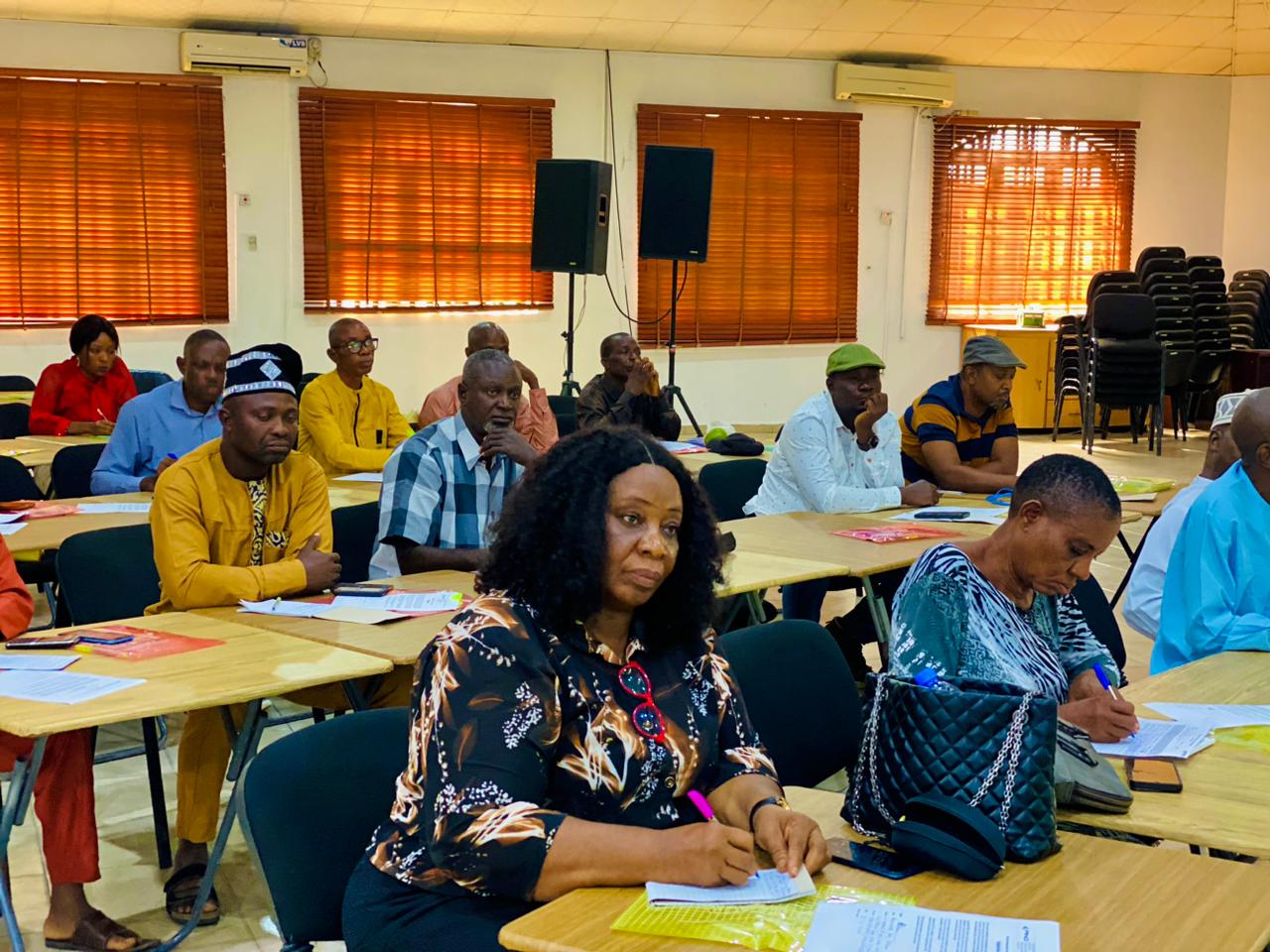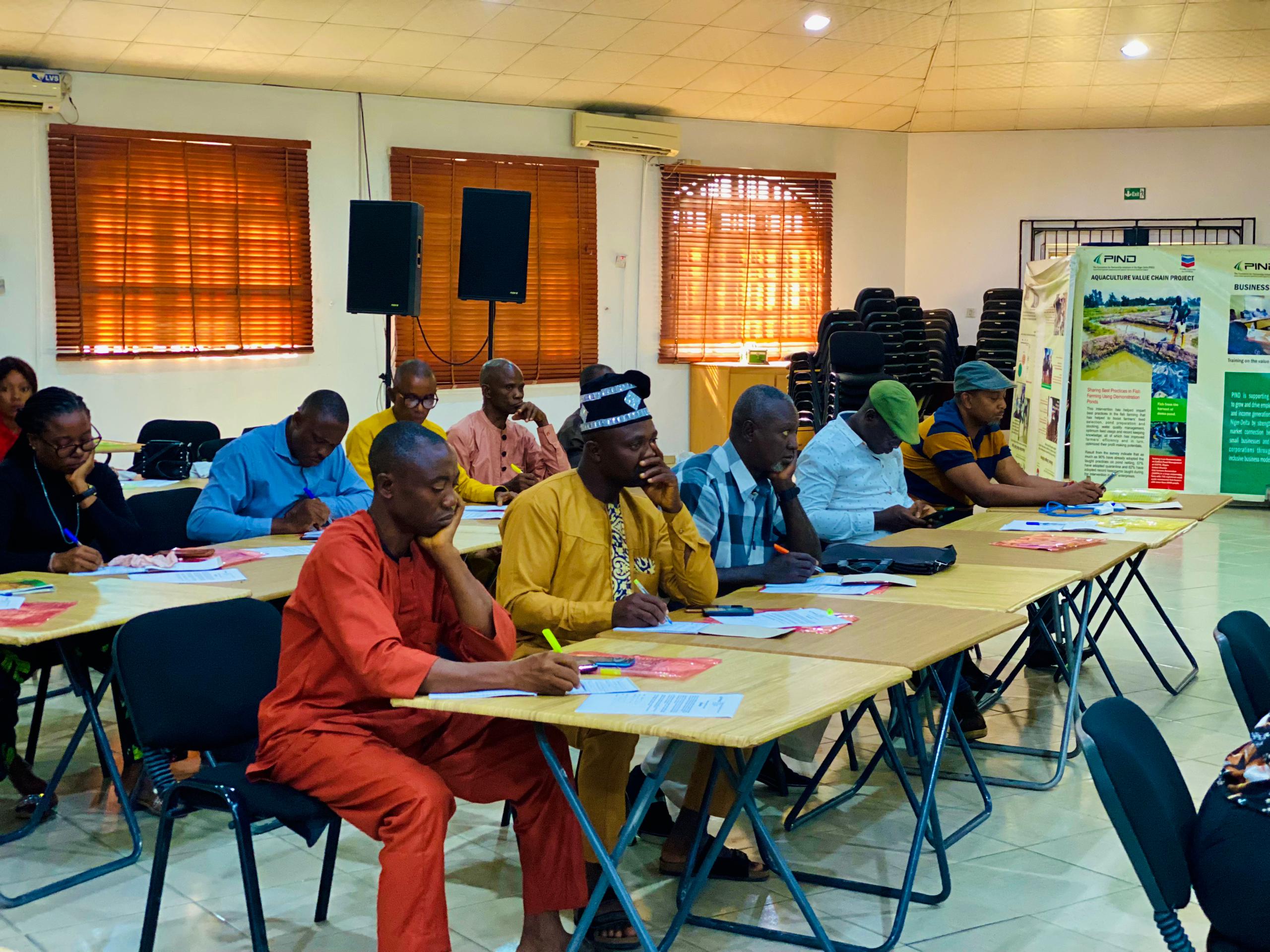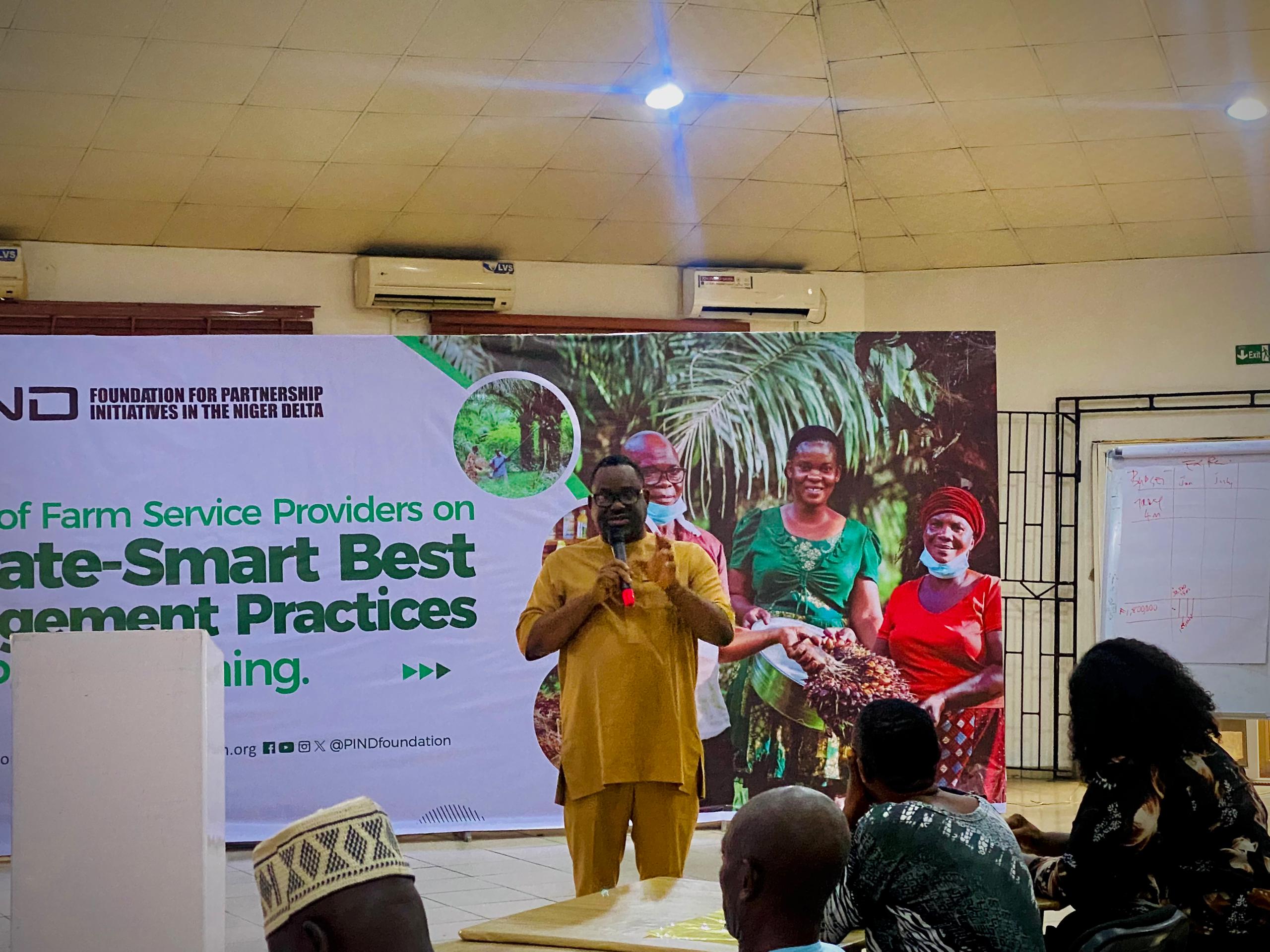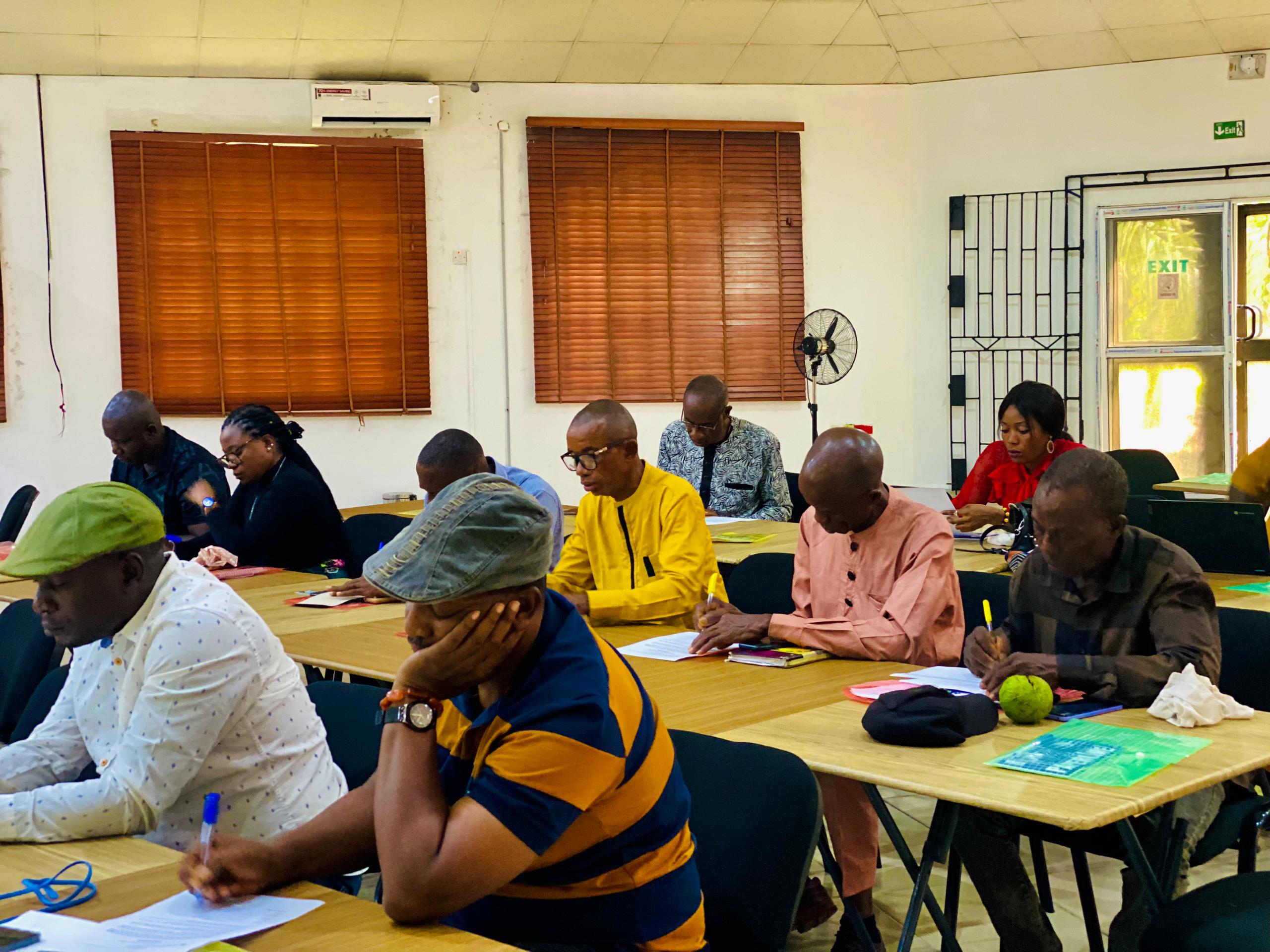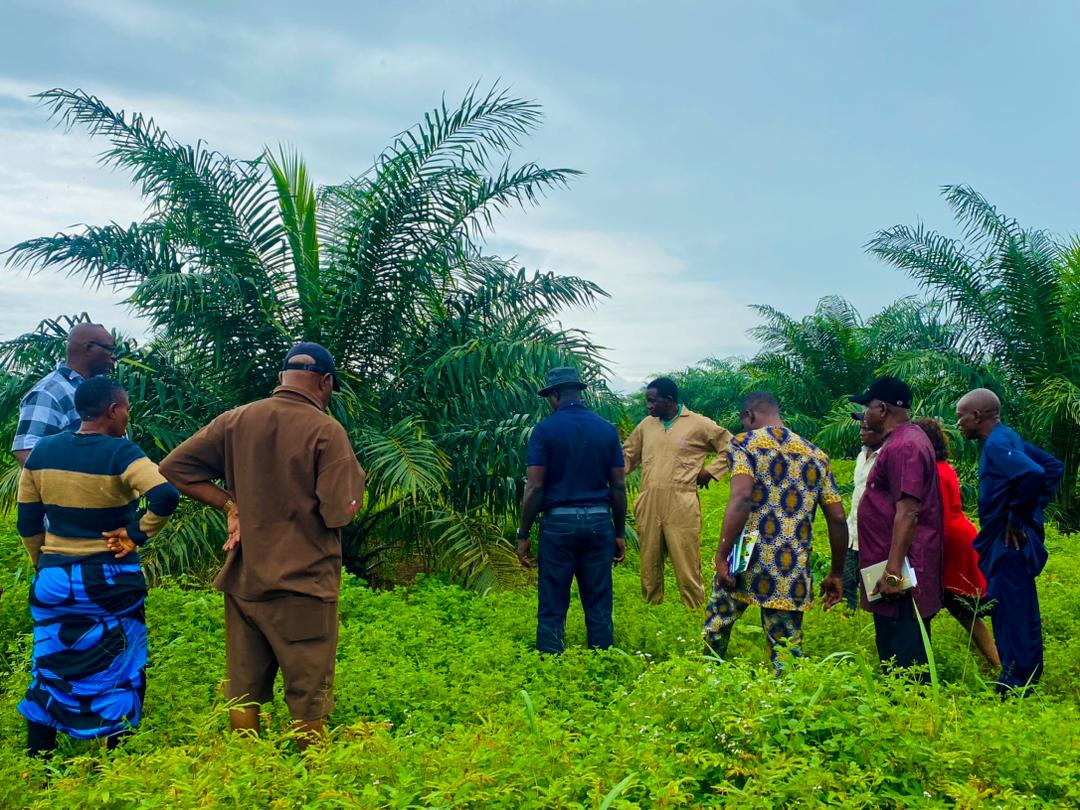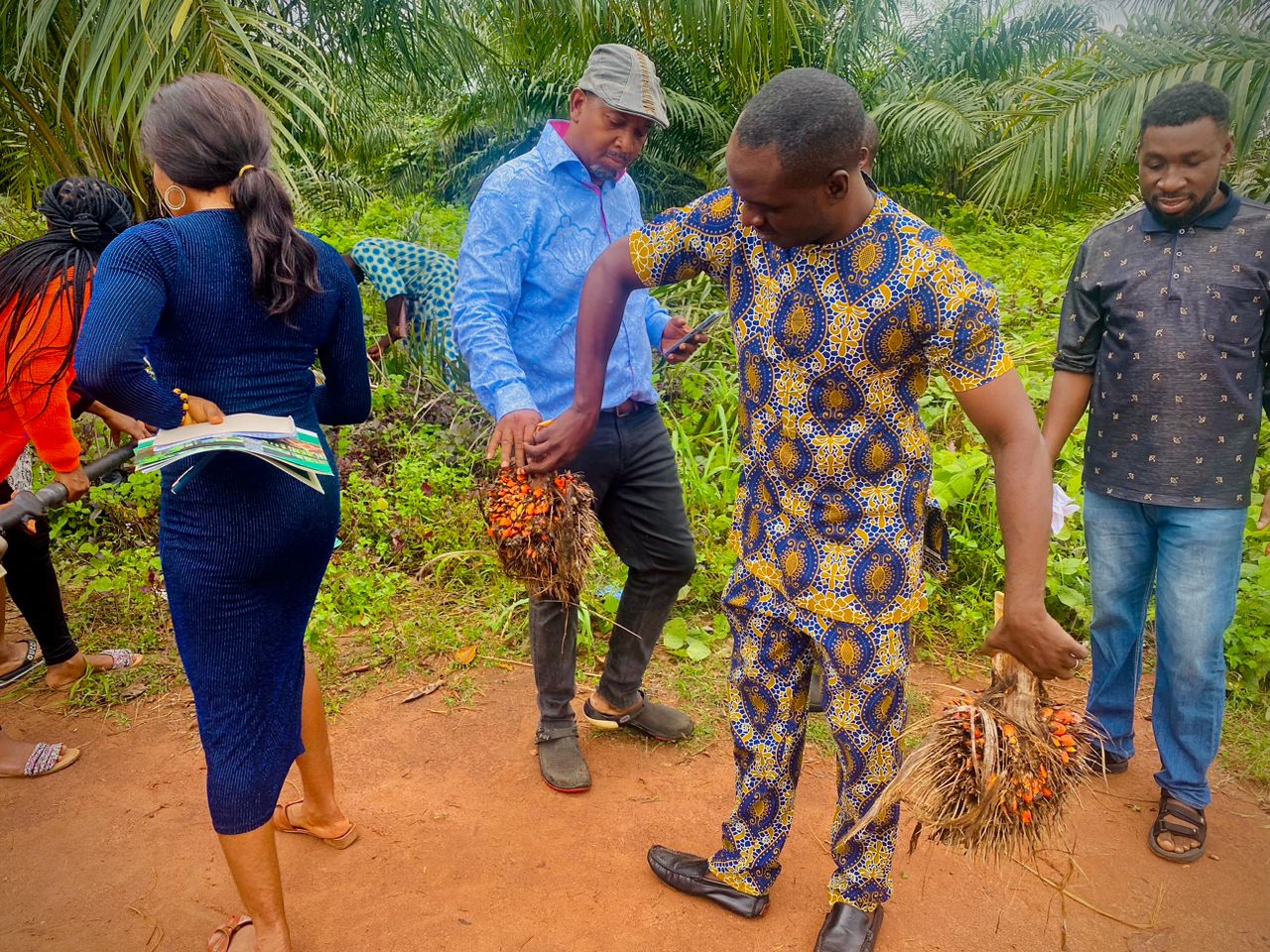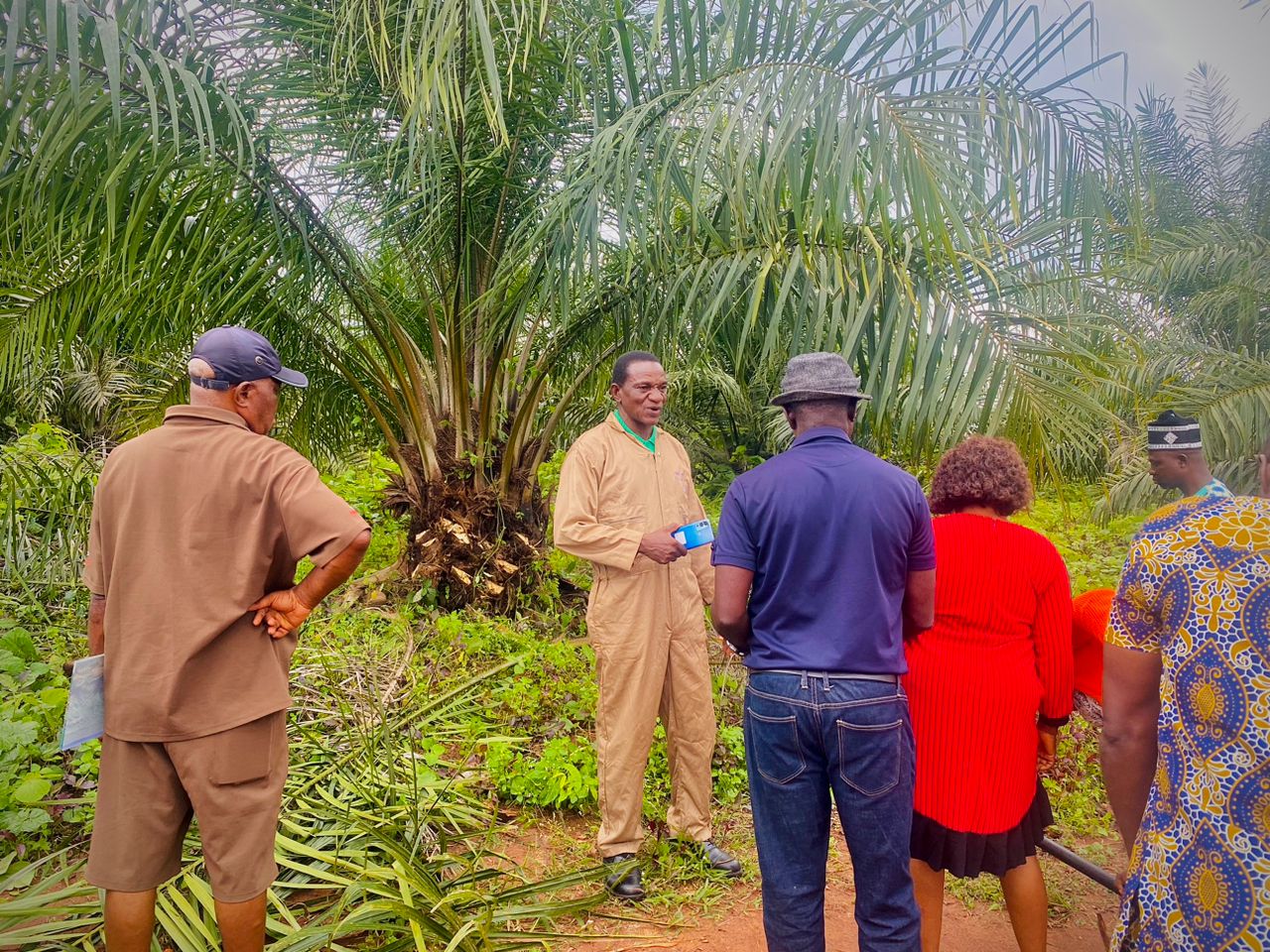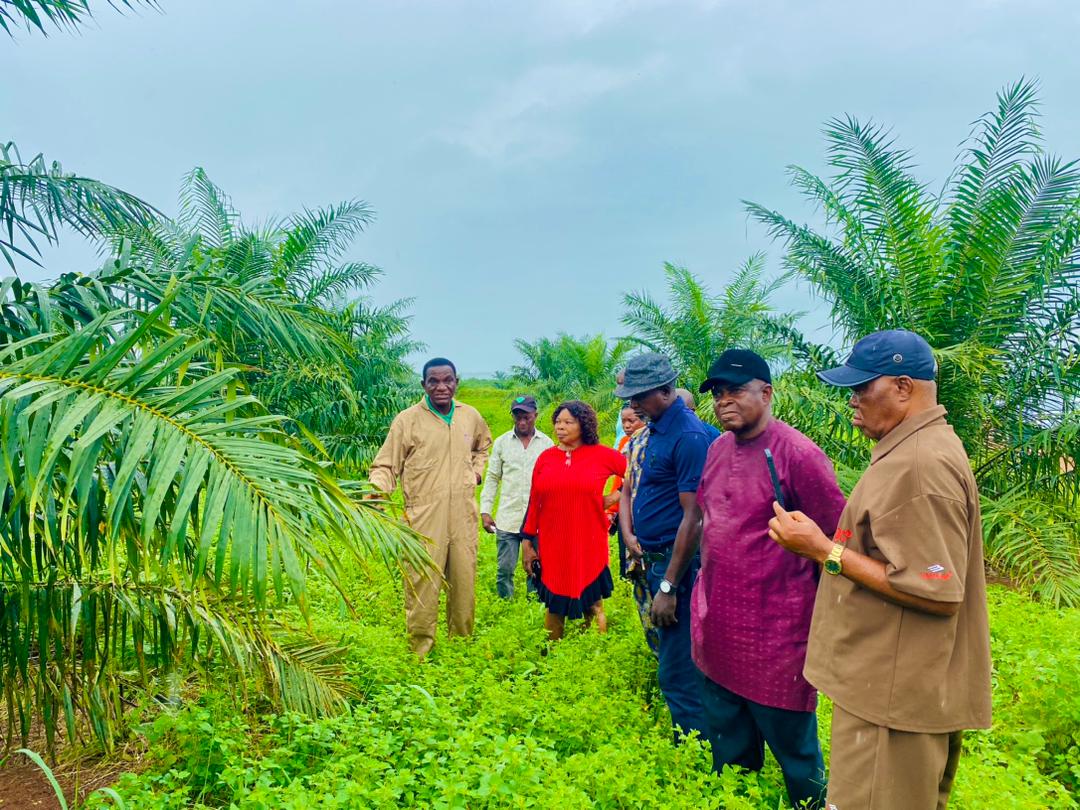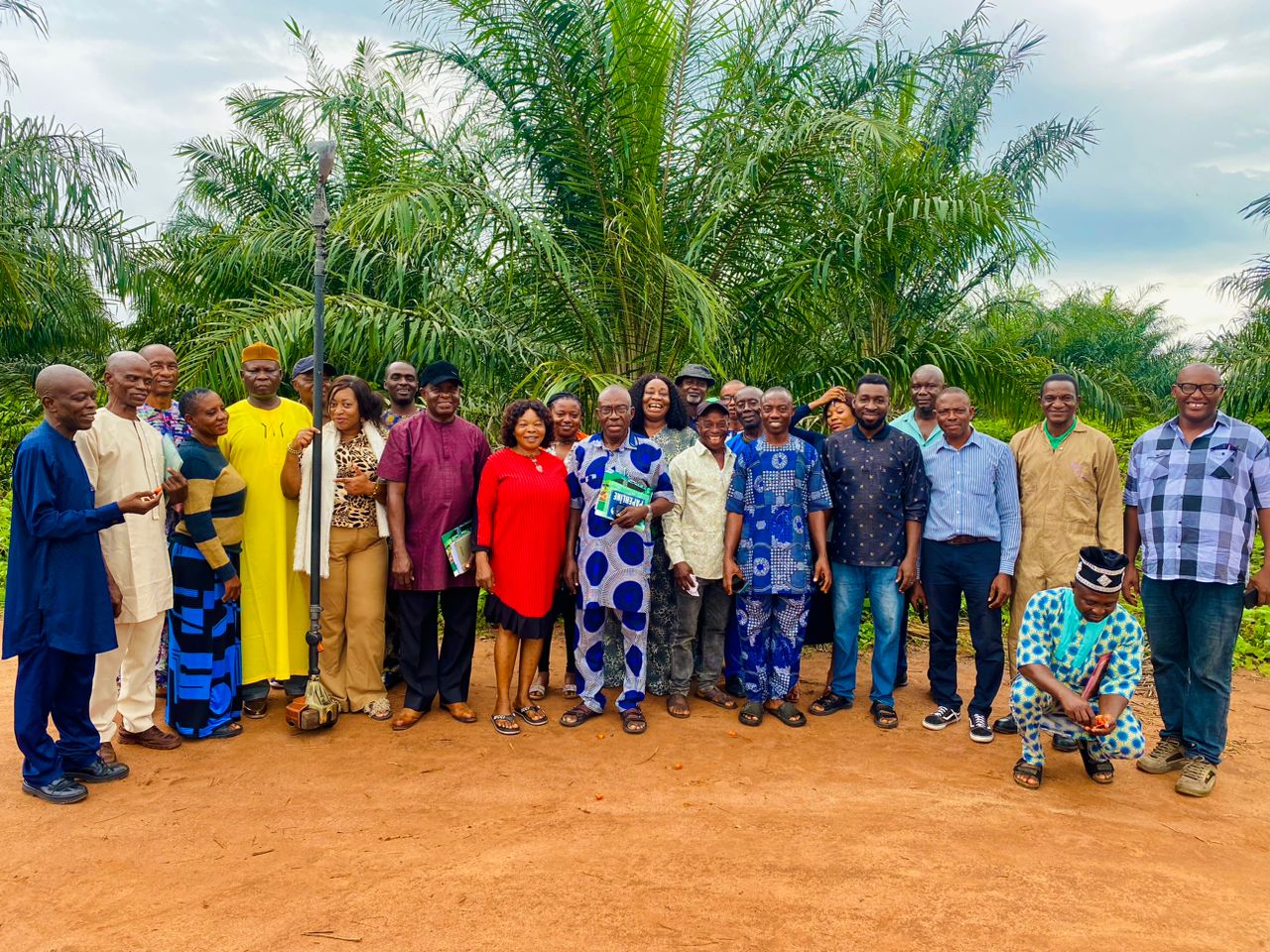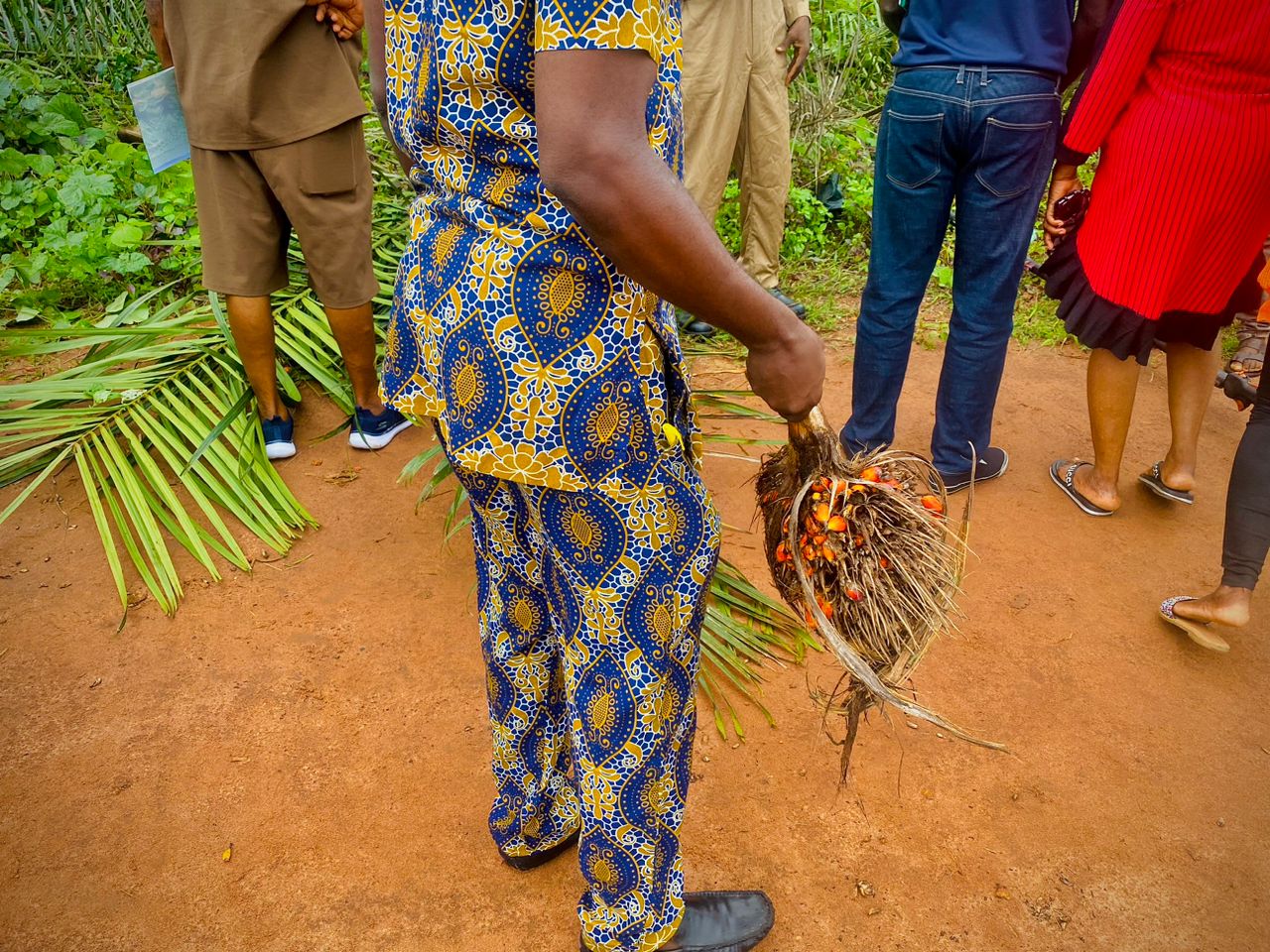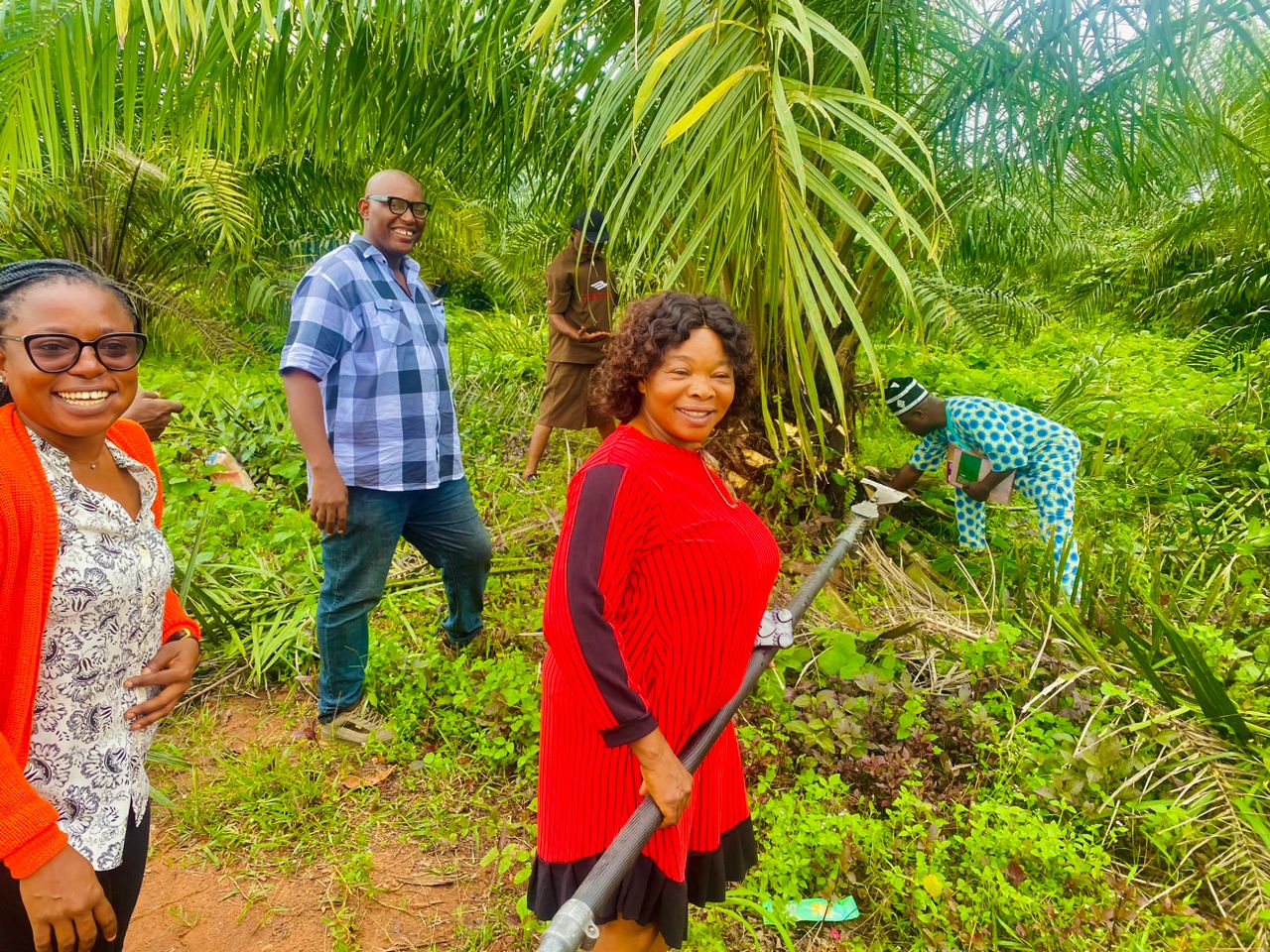In a bid to enhance sustainable agriculture and boost productivity in the oil palm sector, the Foundation for Partnership Initiatives in the Niger Delta (PIND), in partnership with Self-Help And Rural Development Association (SHERDA), recently organized a comprehensive training program for farm service providers. The two-day event held in Warri, Delta State, on the 13 &14 of June 2024, focused on equipping participants with Climate-Smart best management practices tailored explicitly for oil palm farming.
The training attracted over 26 selected Farm Service Providers (FSPs) across Nigeria’s Niger Delta region and in a highly interactive session, combining theoretical knowledge with practical sessions. This approach ensured that participants understood the concept of climate-smart agriculture and gained hands-on experience implementing these practices.
In setting the tone for the workshop, PIND’s Economic Development Manager, Mr. Misan Edema-Sillo, highlighted PIND’s interventions over the years in the oil palm sector, especially the promotion of improved harvesting and processing technologies. PIND’s latest focus is improving access to oil palm seedlings and enhancing Best Management Practices (BMPs) for farmers.
Addressing the participants, the Market Systems Development Manager, Faith Soya, stated that the training was organized to stimulate the adoption of Climate-smart Best management practices by Oil palm farmers across the region, with the Fram Service Providers acting as vital intermediaries in stepping down these solutions, innovations, and practices to farmers in the Niger Delta region.
On the first day, participants were introduced to Climate-Smart Agriculture and Best Management Practices principles and their importance in oil palm farming. The session was facilitated by experts drawn from Okomu PLC and SHERDA and covered a range of topics, including the introduction to Climate-Smart Agriculture, Oil Palm nursery establishment and management, Best management of Oil Palm plantation, and Fresh fruit bunches harvesting and processing. PIND’s Market System Development Advisor for the Oil Palm value chain – Sam Ekwuribe, worked with the Farm Service Providers to create a business case to diversify their income portfolio and make their activities more sustainable.
The second training day was practical at Bragrav Farms, Erhionmwon, Edo State. It included field demonstrations and hands-on learning activities on applying Climate-Savvy Best Management Practices (BMPs) in oil palm farms. The participants actively engaged in knowledge exchange and experience-sharing sessions, creating an opportunity to network and find solutions to their challenges in the field.
The outcome of the training program is to have a significant impact on the participants and the broader farming community in the Niger Delta region. By adopting climate-smart practices, farm service providers can improve the sustainability and productivity of oil palm farming, thereby contributing to environmental conservation and economic growth in the Niger Delta region.

